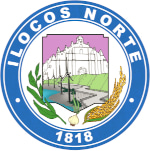Marcos Day in Ilocos Norte Date in the current year: September 11, 2026
 Ferdinand Marcos is one of the most controversial figures in the history of the Philippines, but his birthday is still celebrated as a special non-working holiday in his home province of Ilocos Norte. Marcos Day is observed annually on September 11.
Ferdinand Marcos is one of the most controversial figures in the history of the Philippines, but his birthday is still celebrated as a special non-working holiday in his home province of Ilocos Norte. Marcos Day is observed annually on September 11.Ferdinand Marcos was born on September 11, 1917 in Sarrat, Ilocos Norte. His father was a lawyer, educator and politician, and his mother was a schoolteacher. Marcos studied law at the University of Philippines College of Law in Manila and passed the bar examinations in 1939.
Marcos first gained notoriety in 1935 after the murder of Julio Naludasan, his father’s political rival. Ferdinand was one of the main suspects; he was prosecuted in the late 1938 and early 1939, found guilty, and sentenced to 10 to 17 years in prison. However, his sentence was overturned by the Supreme Court in October 1940.
During World War II, Marcos served in the United States Armed Forces in the Philippines. He was taken prisoner by the Japanese in 1942 and released several months later. After his release, Marcos led a guerrilla force in Northern Luzon. However, many of his claims about his military service during the war were later found inaccurate or false. Interestingly, Marcos’s father was allegedly executed by guerrillas for being a Japanese collaborator.
Marcos’s political career and rise to power began after World War II, when he joined the Liberal Party. He served as a member of the House of Representatives from 1949 to 1959 and was elected to the Senate in December 1959. From 1963 to 1965, Marcos was the president of the Senate.
In November 1965, Marcos won the presidential election, defeating the incumbent president Diosdado Macapagal who ran for a second full term. Marcos remained popular for most of his first term due to his infrastructure development program. He also significantly expanded the military, which would prove useful to him later on.
In 1969, Marcos was reelected for a second term, the start of which was marked by turmoil due to a currency crisis caused by heavy government spending. Emerging opposition groups began to protest, and Marcos used military force to quell the protests. After a controversial constitutional convention and a series of bombings the took place in Manila from March to September 1972, Marcos declared martial law on September 23, 1972.
The general public initially approved of the martial law because it made crime rates drop. However, today Marcos’s martial law is remembered for human rights abuses targeting Marcos’s political opponents, journalists, activists, religious leaders, and others who opposed his dictatorship. During the martial law era, Marcos abolished the post of vice president, and served as both president and prime minister after the reestablishment of the latter post in 1978.
Martial law was lifted in 1981. Six months later, the first presidential election since Marcos’s reelection for a second term in 1969 was held. Marcos was reelected for a third term and served as President of the Philippines until being ousted in the People Power Revolution in February 1986. He fled to Hawaii and spent the last three years of his life there. Marcos died in a hospital on January 15, 1989.
The birthday of Ferdinand Marcos was designated as a special non-working holiday in Ilocos Norte. It is marked by ceremonies, concerts, literary and art competitions at schools, job fairs, and other events in honor of Marcos’s birth anniversary. However, quite a lot of people oppose the celebration because of human rights abuses associated with the dictatorship of Ferdinand Marcos.
- Category
- Anniversaries and Memorial Days
- Country
- Philippines
- Tags
- Marcos Day in Ilocos Norte, holidays in the Philippines, holidays in Ilocos Norte, special non-working holidays, regional observances